Meditative timekillers
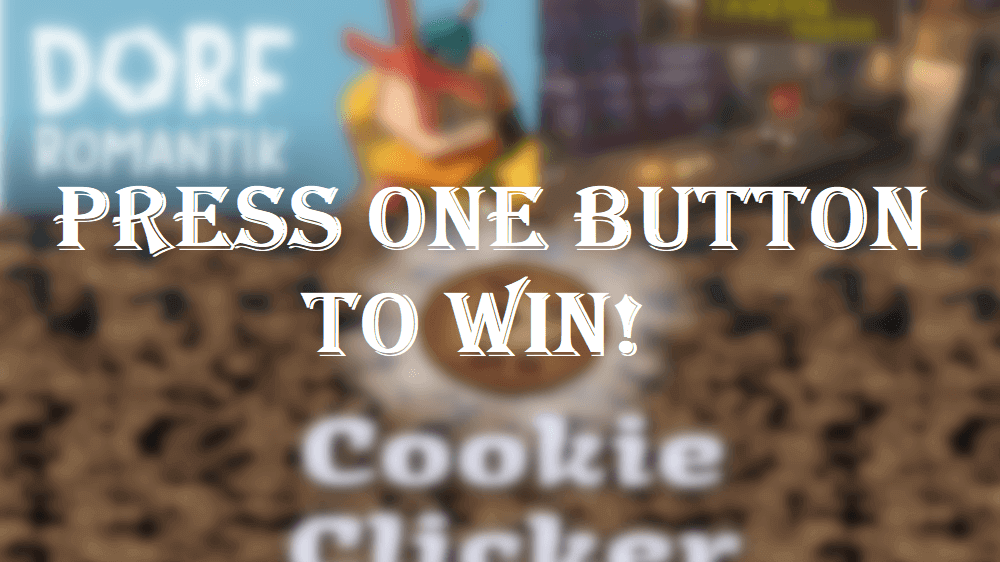
Meditative timekillers
Have you ever been in a similar situation: you come home tired and hungry, you want to relax all your muscles, drown your fatigue? You don't want to look for a decent movie or watch a TV series. Read a book, and certainly not, because to read also takes precious forces. Choice fell on a video game, as the most relaxing form of recreation.
Except that I have to strain myself in the game, and that was enough for one day. To help come to the aid of Idle-games, which play, let's not as fascinating, but simple. And that's exactly what a tired person needs.
Dorfromantik - A cozy world in the palm of your hand
What associations does the word heartful conjure up for you? Cups of steaming tea, winter evenings under a terrycloth blanket, maybe faded childhood portraits in a photo album come to mind. For great connoisseurs soulful pastime is also associated with board games. Many have tried to reproduce the atmosphere of a warm dome outside of space and time: some have succeeded in making a contribution, while others only pretended to be a hearth of spiritual warmth, and then showed their ugly, toxic face to the world, soaked through with donat. I won't point the finger.
There's not much to say about Dorfromantik itself. It's an elementary city-building puzzle game where the player is only required to place hexagons in such a way that at least one of its faces combines with adjacent pieces.
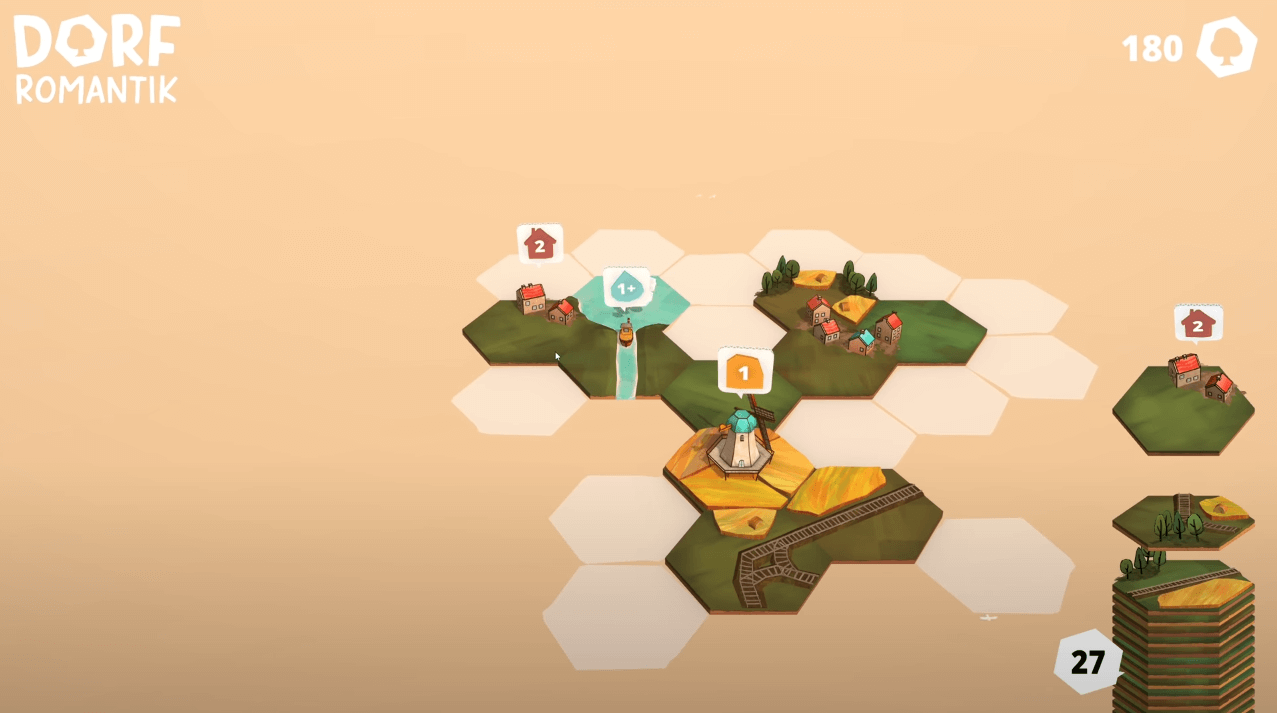
Each successive hexagon is in the lower right corner. According to the rules of the game, you cannot choose a hexagon by yourself. The hexagon must eventually fit into a single countryside village puzzle. For example: you have a hexagon with a lake, then it is more advantageous to put the reservoir in a place with a stream running to it. As soon as the stream appears from the lake, you get points and new cards in your deck.
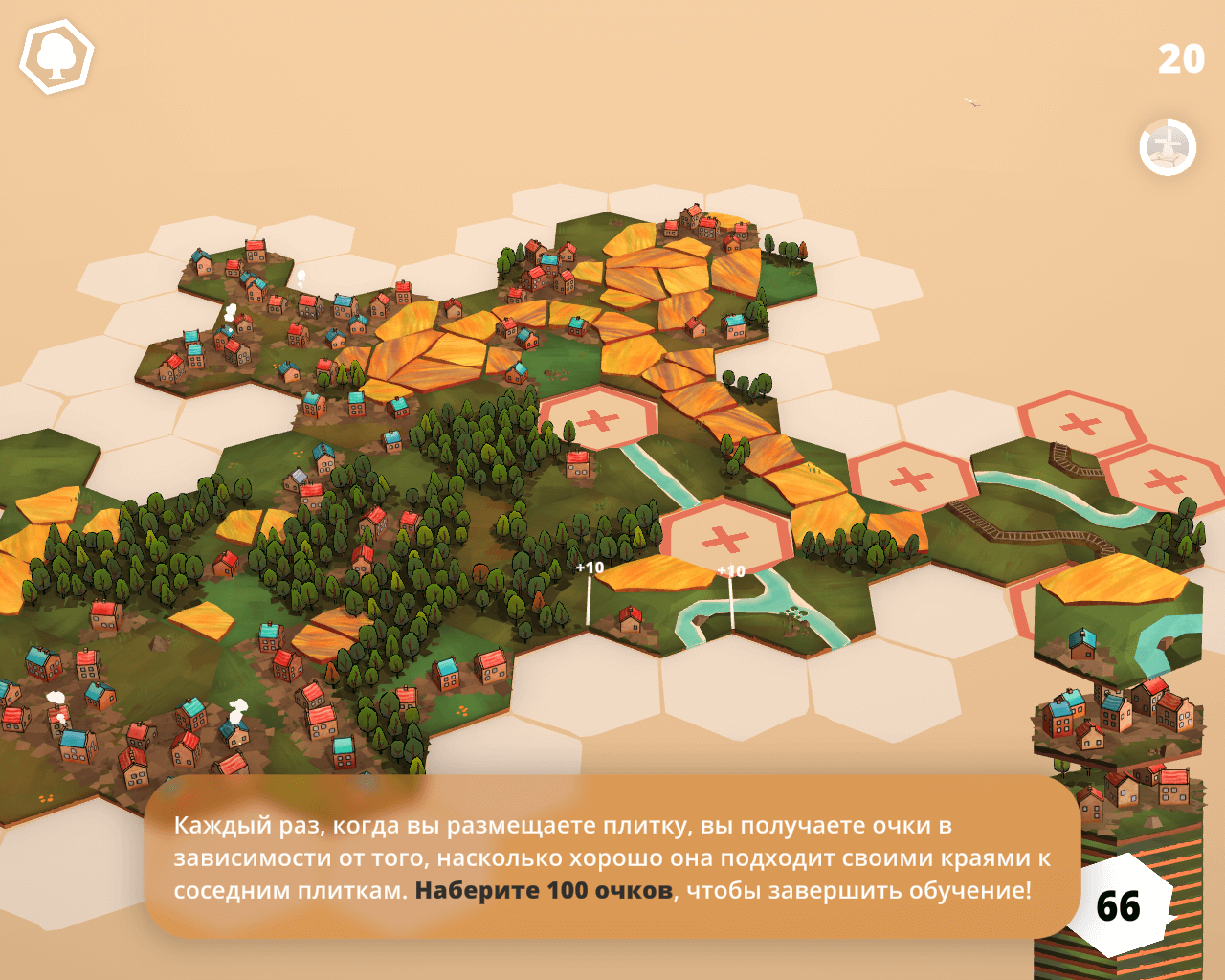
For a successful combination you get points, for an unsuccessful one you lose nothing but a wasted map and the opportunity to decorate the place more picturesquely.
When you think of your ideal village ahead of time, you're building a new world without realizing it:
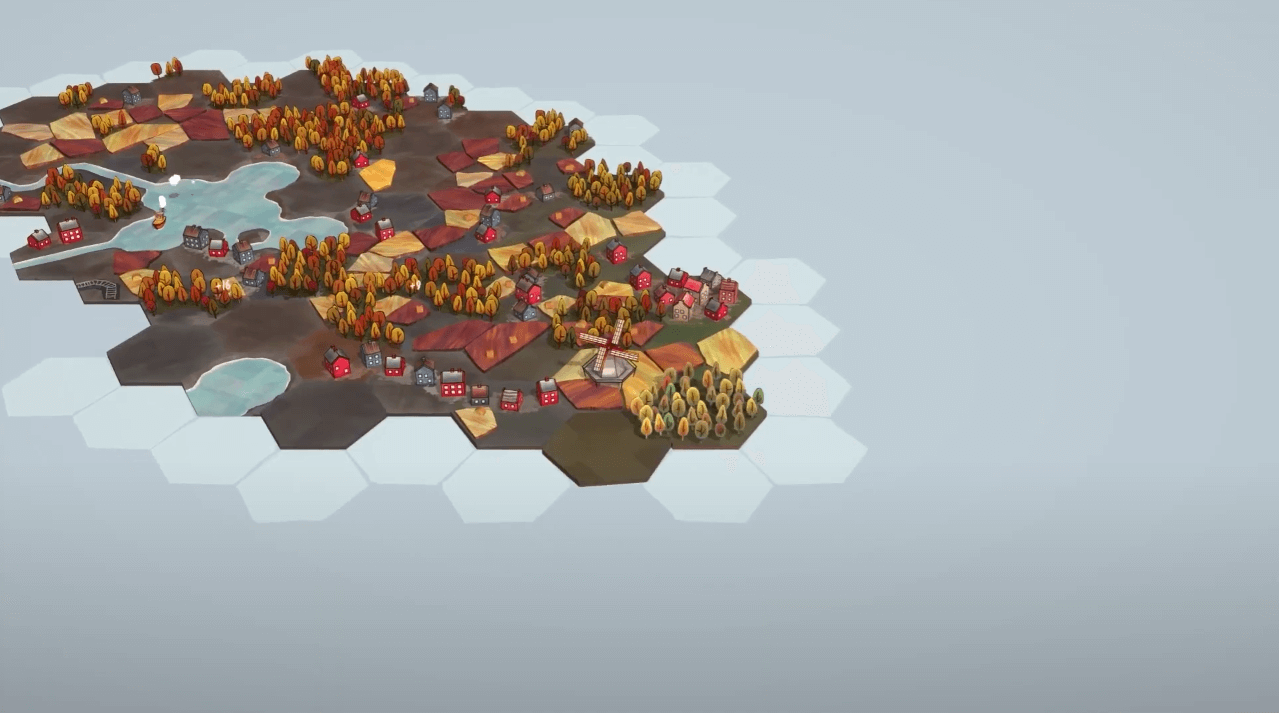
Icons of houses, drops or stone are the number of combinations for the cell: a rare card with a squat village should be placed next to other houses, ideally - put the village in a free cell in the middle like this:
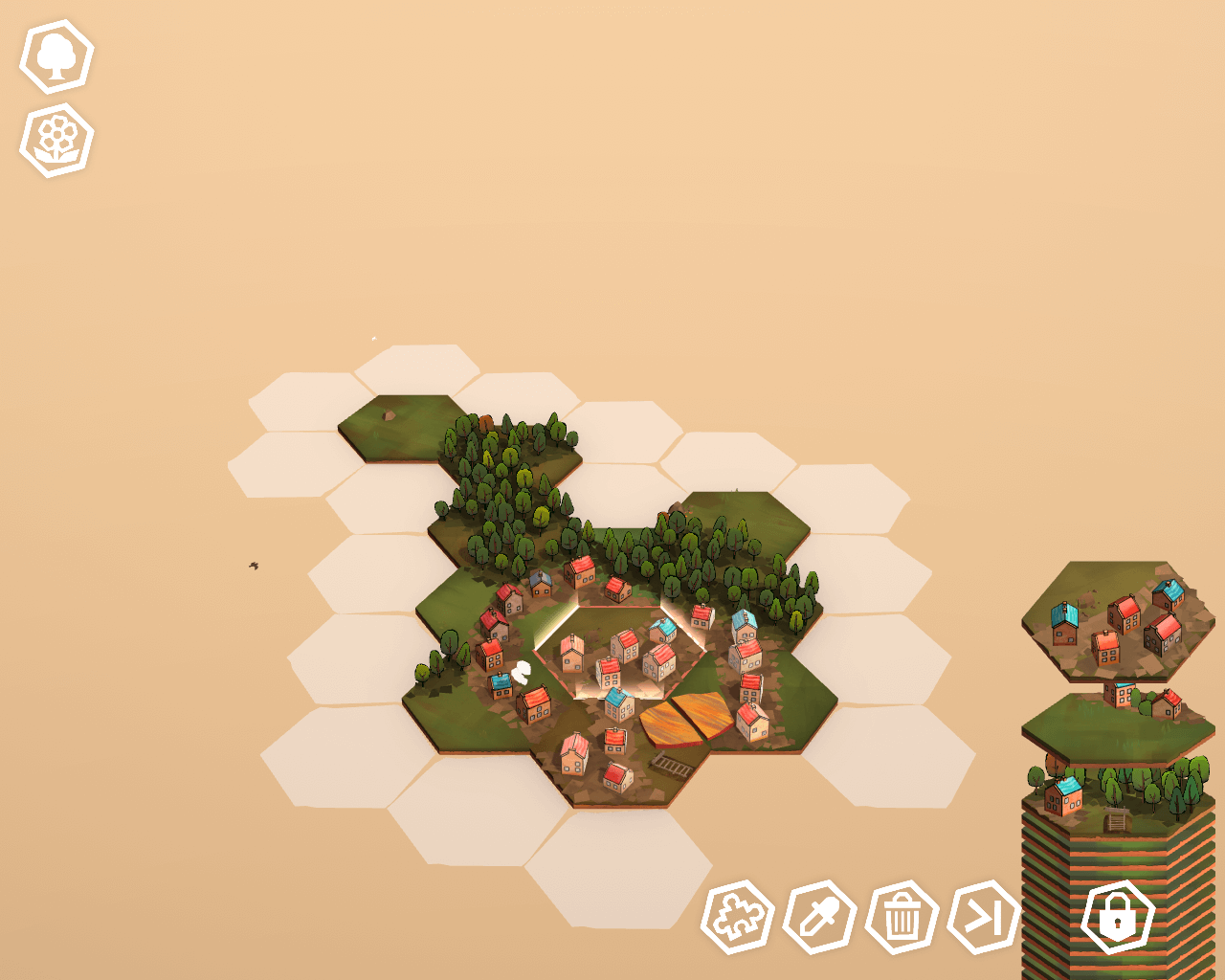
In normal mode, you are given 3 global quests and dozens of side quests for the entire session. You'll be snapping side quests like sunflower seeds. Put a settlement near the houses, stick a stream near the swamp - nothing difficult.
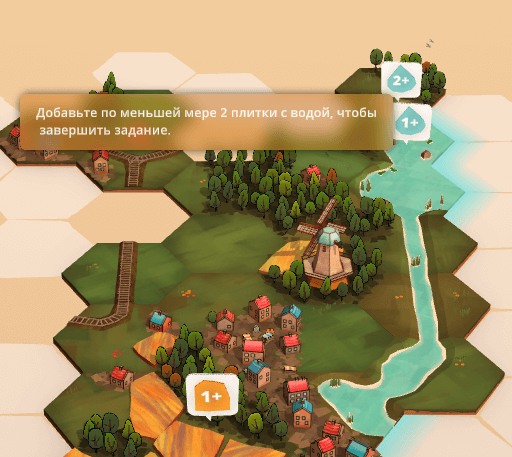
That's the essence of Dorfromantik, the essence of a video game with board game roots; a game that was developed by four students and turned in as a thesis.
Of course, the game is not without its nuances. So, for example, for points you will gradually unlock new cards for your deck. Sometimes it will be a hilarious steamroller...
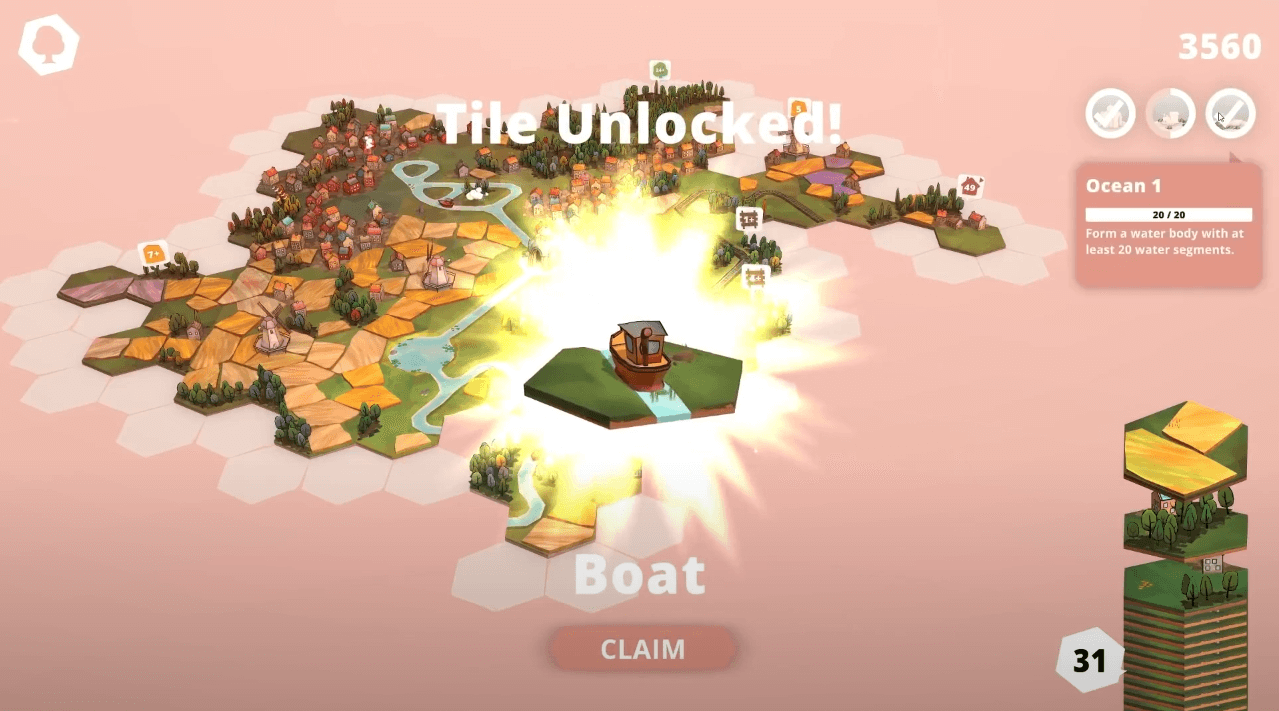
...And sometimes - a small locomotive. What on the water surface that on the rails transport moves in routes, which brings back memories of a toy railroad.
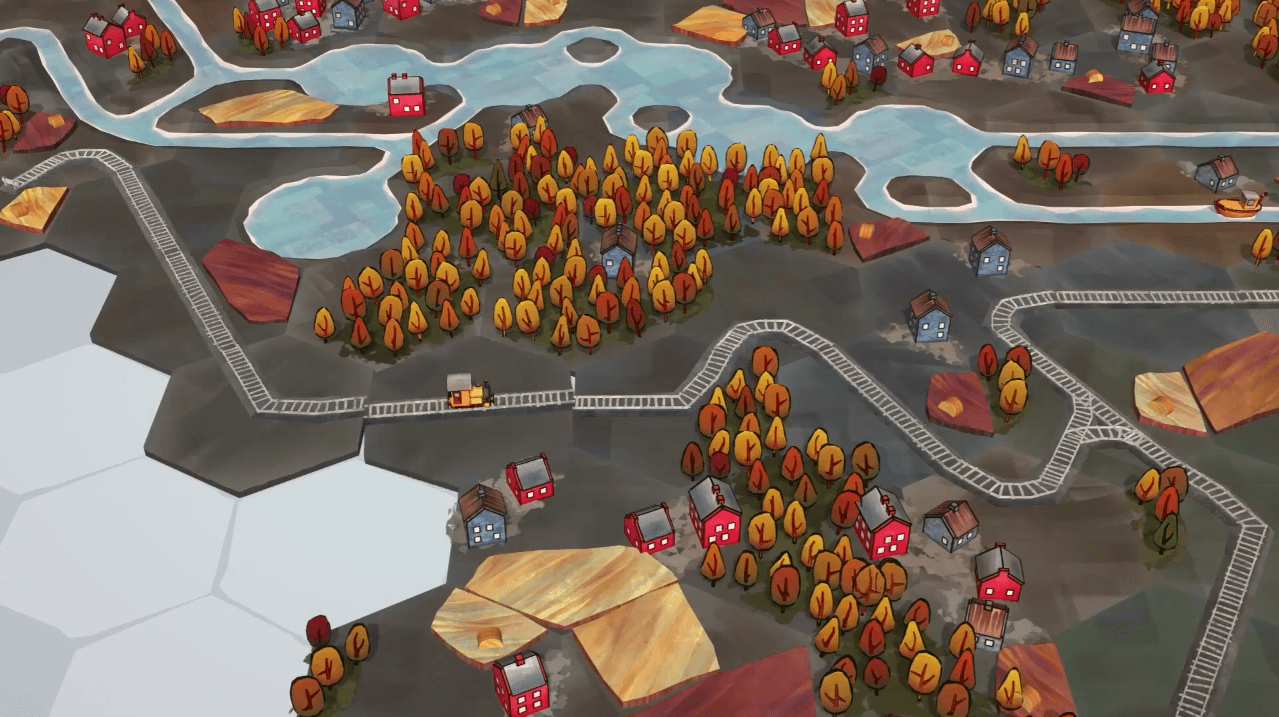
I have repeatedly mentioned the modes...
At first, Dorfromantik was quite deservedly scolded for its monotony. Each game session dragged on, which did not allow you to play just a couple of minutes or, conversely, to sculpt the world to infinity. Toukana Interactive listened to the comments of critics and implemented in the game as many as five modes:
The classic mode, Unchanging, has been around since early access. Its essence I described above.
Creative Mode - Similar to Minecraft mode: no restrictions, the world is a canvas, and your imagination is a palette.
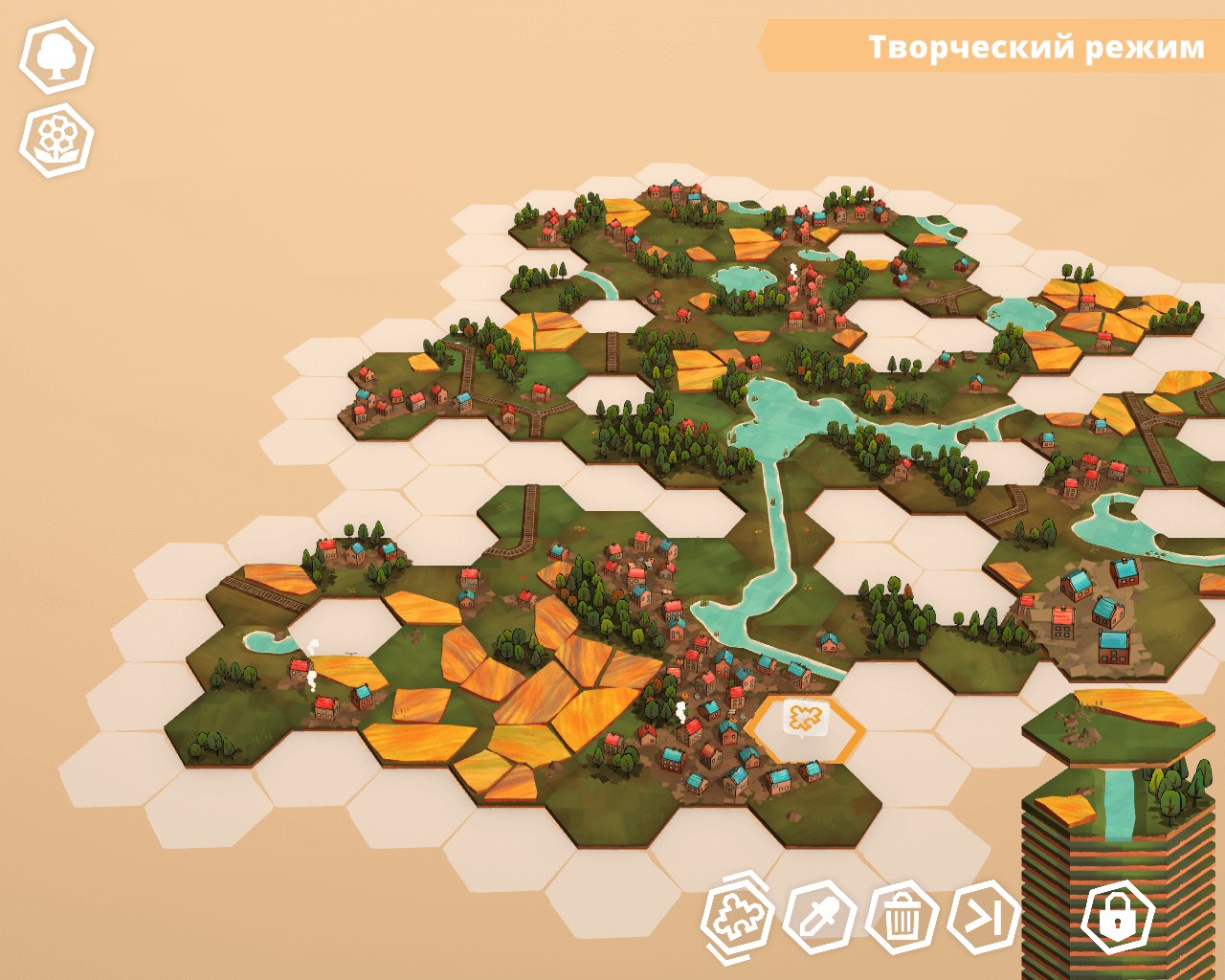
Quick Mode - Quick Mode was born out of complaints about long sessions. Same classic mode, only there are fewer cards with biomes in the player's hand; consequently, the games are tenser and shorter.
Advanced Mode - For those who think through each set hex, knowing what they will put the next. Chess on minimum.
Custom - To realize the imagination of the players.
Monthly - With custom rules which are updated once a month. Mode for variety and replayability.
Tavern Master - Build your dream tavern
If you've ever been to a good bar, you've probably had the brilliant idea to start your own place after the second drink. Once you've had a drink, you've probably fantasized about your interiors, booze, and meat dishes. So Tavern Master will help you make your hop dreams come true, albeit mockingly...
Initially, Tavern Master will offer you a choice of two game modes: a story campaign and a sandbox. The only difference between these modes is that in the first one, you have limited resources, and in the second one, everything depends on your imagination.
We play the owner of the institution, which means that all the organizational aspects will fall on our shoulders. We will have to start literally from scratch - with the construction of the tavern building.
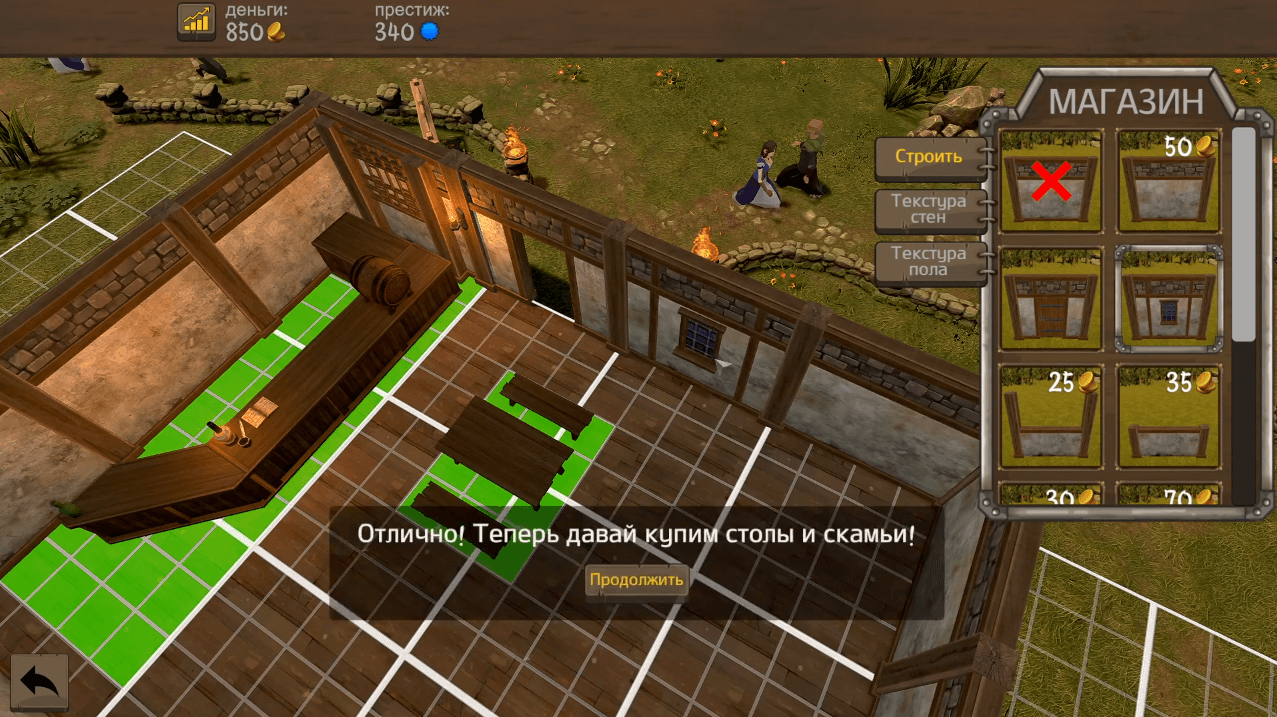
Gold and prestige are the measures of our progress. And if we get prestige in a linear progression, just by decorating the tavern, then the gold in Tavern Master is almost on a simulator level: we buy raw materials, rebuild our bar, and pay salaries for gold. The economic aspect is the only element of immersiveness. In other respects, Tavern Master is closer to smartphone games than to in-depth simulation games. The first crawl towards economic strategy you will notice when you start selling not only beer and water, but also ale, lemonade and wine.
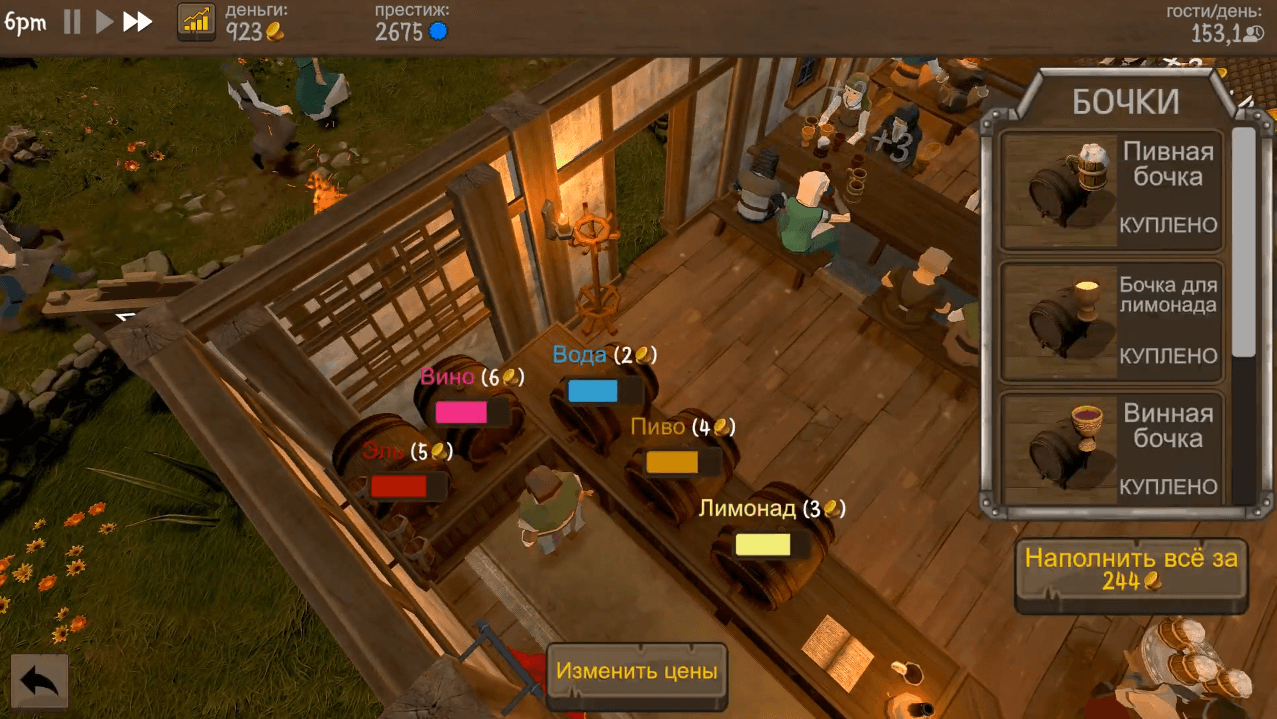
The list of products is huge. All culinary delights will be cooked by chefs, who will also have to be pumped. Only an experienced chef can make recipes to suit all tastes and budgets...
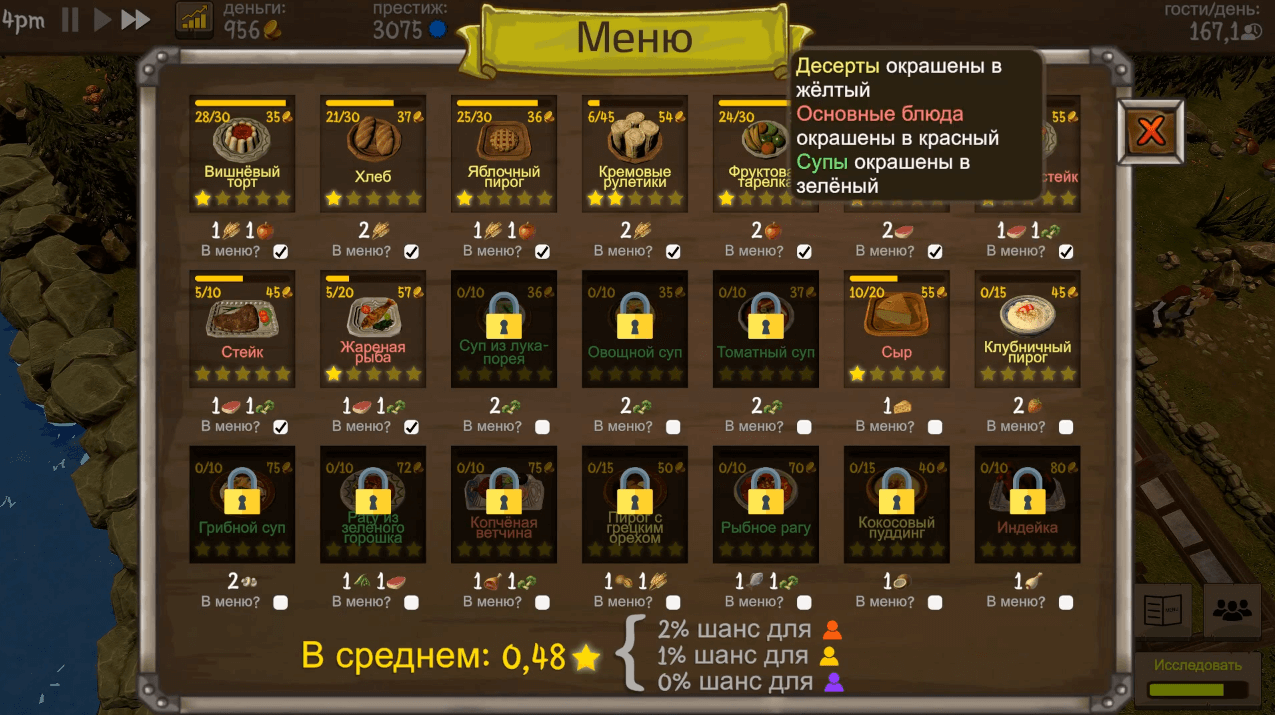
...However, everything is like in real life with the staff: if your chef works for us faithfully and learns new things, and waitresses are already trained to serve more customers, then they will evaluate themselves accordingly. Paying a pittance to an experienced professional can lead to the loss of a specialist, and in Tavern Master unhappy employees will be sad and work half-heartedly. The game could use a little realism.
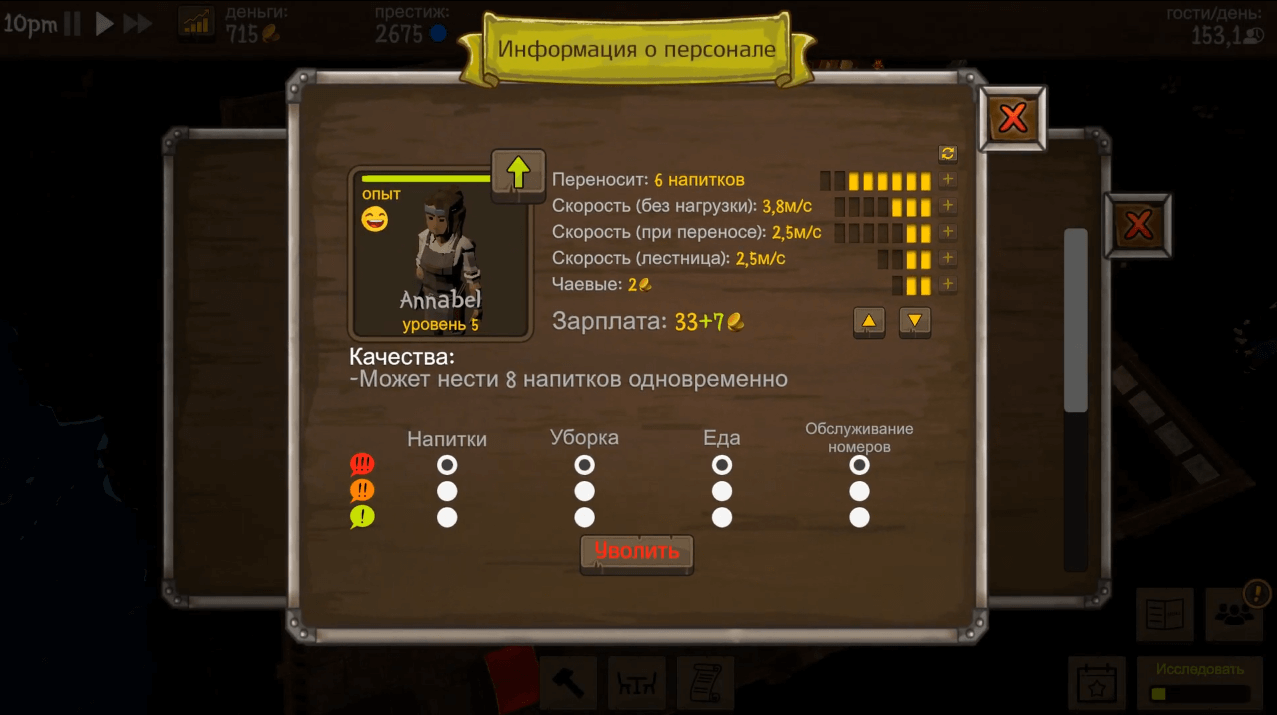
If you don't want your tavern to be a local hangout, get ready for the long and thorny road of restaurateurism. It doesn't make sense to stay on one level for too long, so convert the bar into a local landmark:
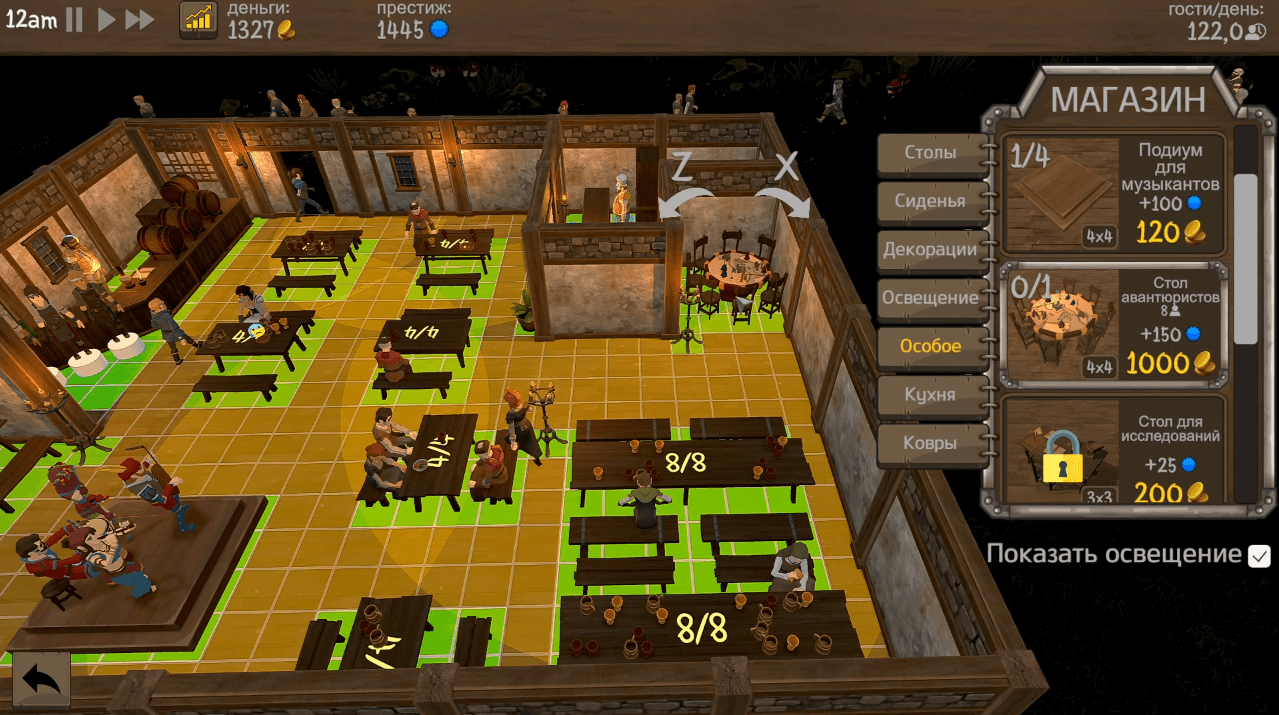
We have seen similar tasks in dozens of city-building simulators, builder simulators, etc. However, it was nice to notice that, despite the ideological simplicity, Tavern Master is reluctant to forgive mistakes. It's only a matter of time before you're willing to pay millions of dollars an hour to your staff, and your once profitable tavern turns into a typical small business from a third-world country:
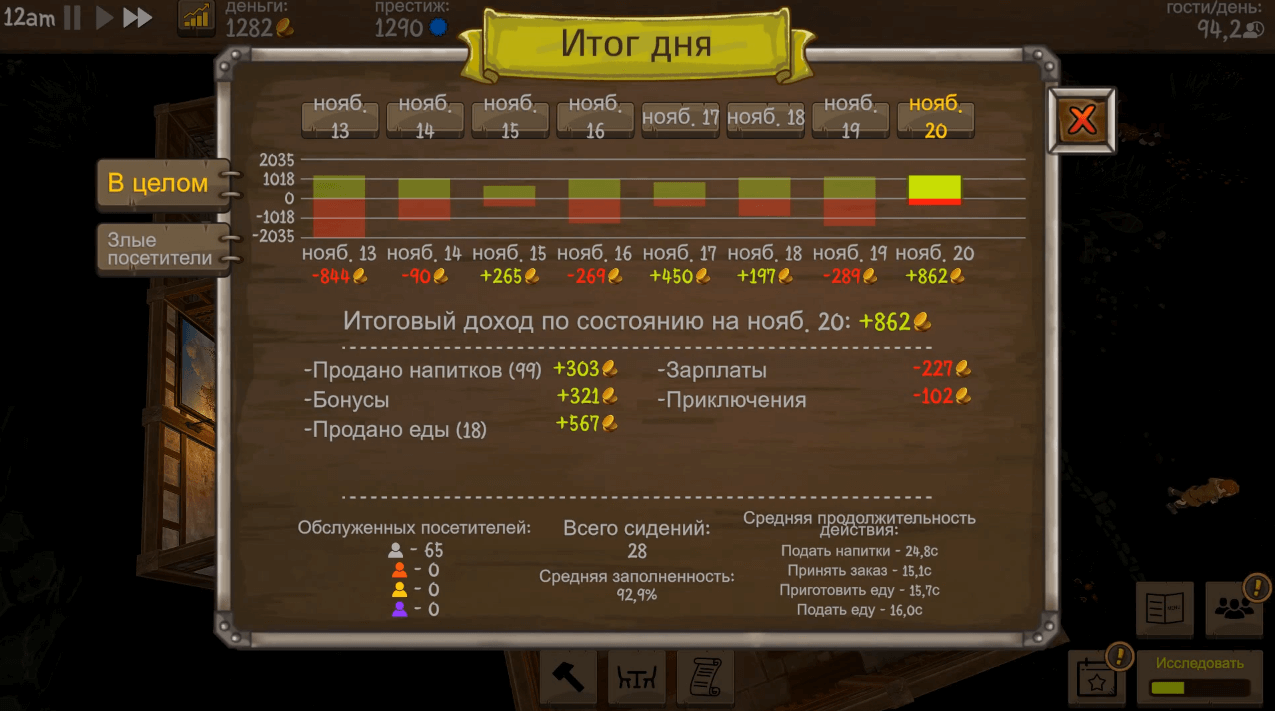
But accounting and profit are not the measure of progress. The measure of progress is customers. Fortunately the game in a medieval setting, to get a negative review in the "Google maps" you will not be threatened, so that you will work not on quality but on quantity. The more customers you take in the tavern for the day, the faster you pump the appropriate branch of development for the bar. The research progression is similar to that of Sid Meier's Civilization VI, only much simpler structurally:
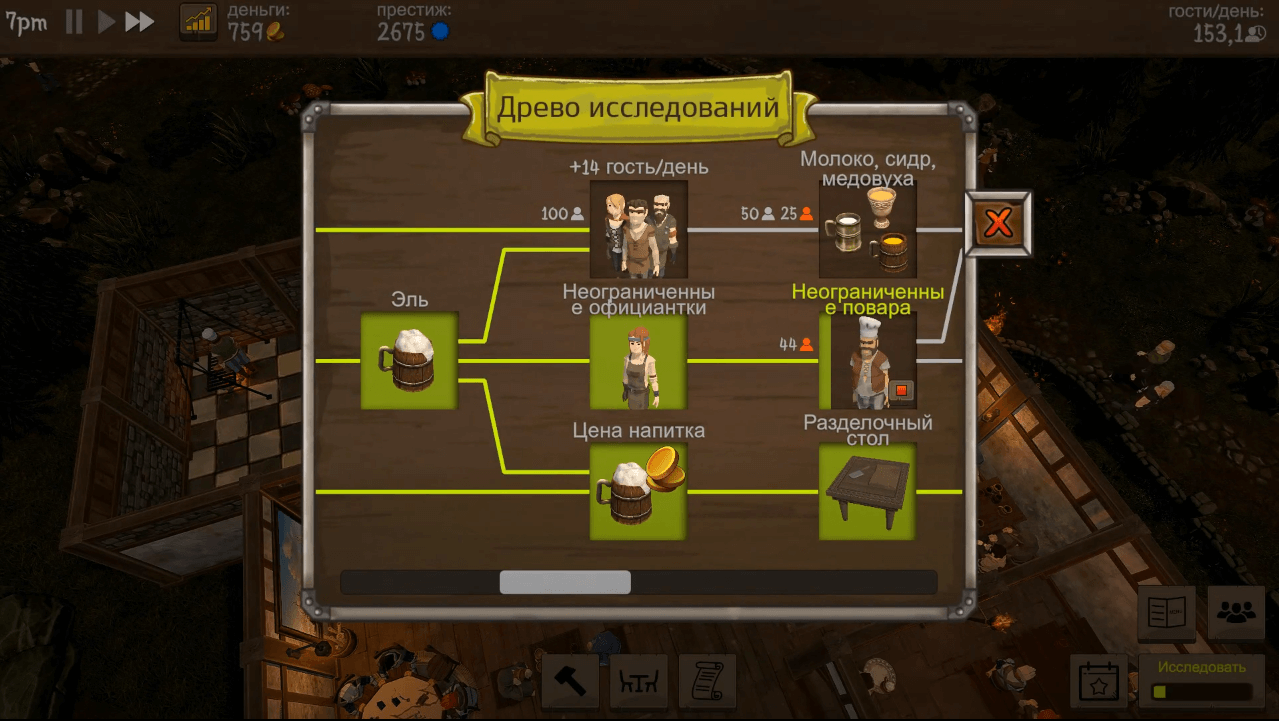
However, the game has a problem with pumping. At times, visitors have to languidly fill up by earning a reputation. Without the necessary research your bar will remain a mid-range tavern, and the ultimate goal of the campaign - to serve the royal nobles, half the kingdom of guards and do not go bankrupt. But the royal nobility is yet to be reached.
Special guests will drop by at your beck and call. If you like, the point of the game is to successfully banquet with different segments of the population with different needs, preferences and requirements...
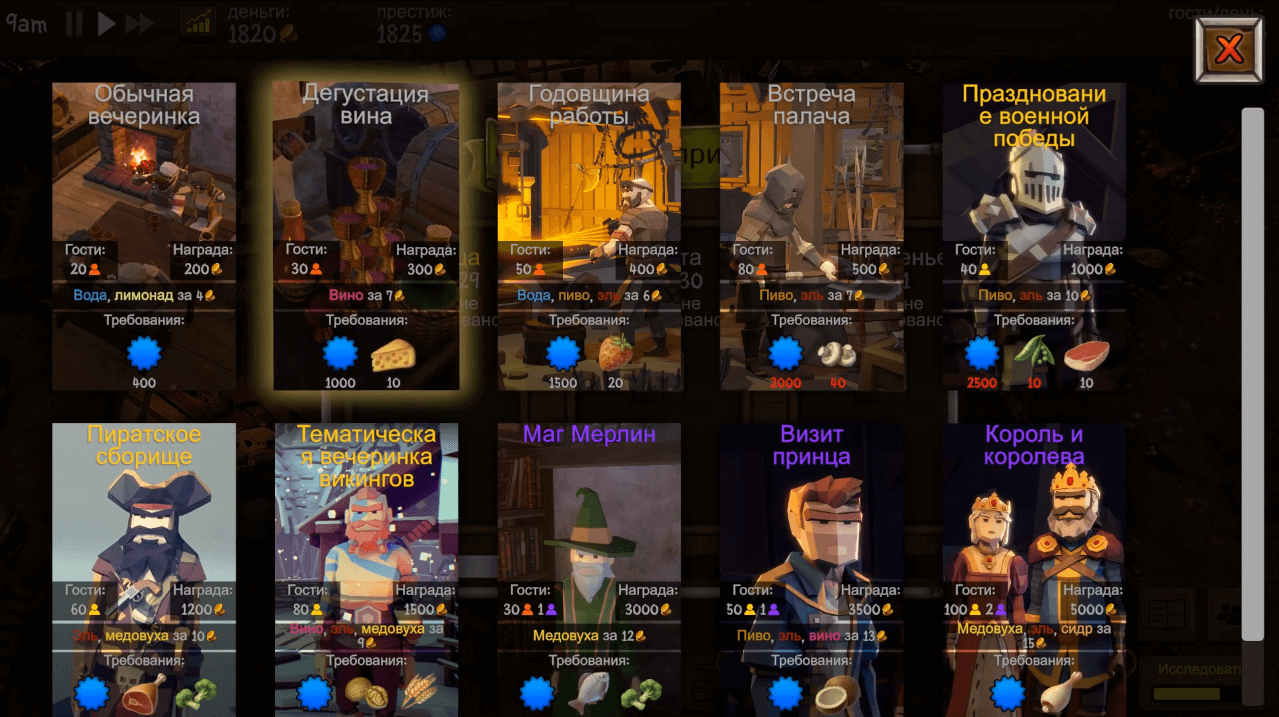
...The guests are divided into colors:
Gray - Commoners.
The golden ones, the honorable and distinguished. They are more difficult to please.
Legendary - Local celebrities with great demands but appropriate pay.
One quick glance at the guest list is enough to understand that Tavern Master is likely to come out on smartphones. All the attributes of a mobile game are in place: casual gameplay - yes, dailies between days-cycles - yes, linear progression with minimal difficulty jumps - yes, easy controls without being tied to dozens of keys - yes.
Tavern Master makes this list because of its simplified simulation. Visitors will not knock over a light fixture, thus provoking a fire. Guards won't start a drunken sword fight, and there's not much to worry about in the game; you only have to fill up your supplies with necessary food and drink, interact minimally with the staff, and somehow build the place. The game is easy.
Cookie Clicker - Brain Hack
Here we come to the most addictive and one-touch game in history, not even close to Jolly Farms. Please love and love - a regular of smartphones in passages, hidden games on work computers and a killer of computer mice - Cookie Clicker.
Cookie Clicker is a prank that has gotten out of hand. History has known those instances where one person has created a hit indie game, but for one person to create a hit game with over 96% positive reviews on Steam and a steady 8,000 online is something new. Cookie Clicker was created by French programmer Julien Tienneau in just one evening with no ambition or goals, Julien developed Cookie Clicker as a joke. The crux of the game is that you see a cookie on the left side of the screen. You click on a picture of a cookie, you spice up one cookie.
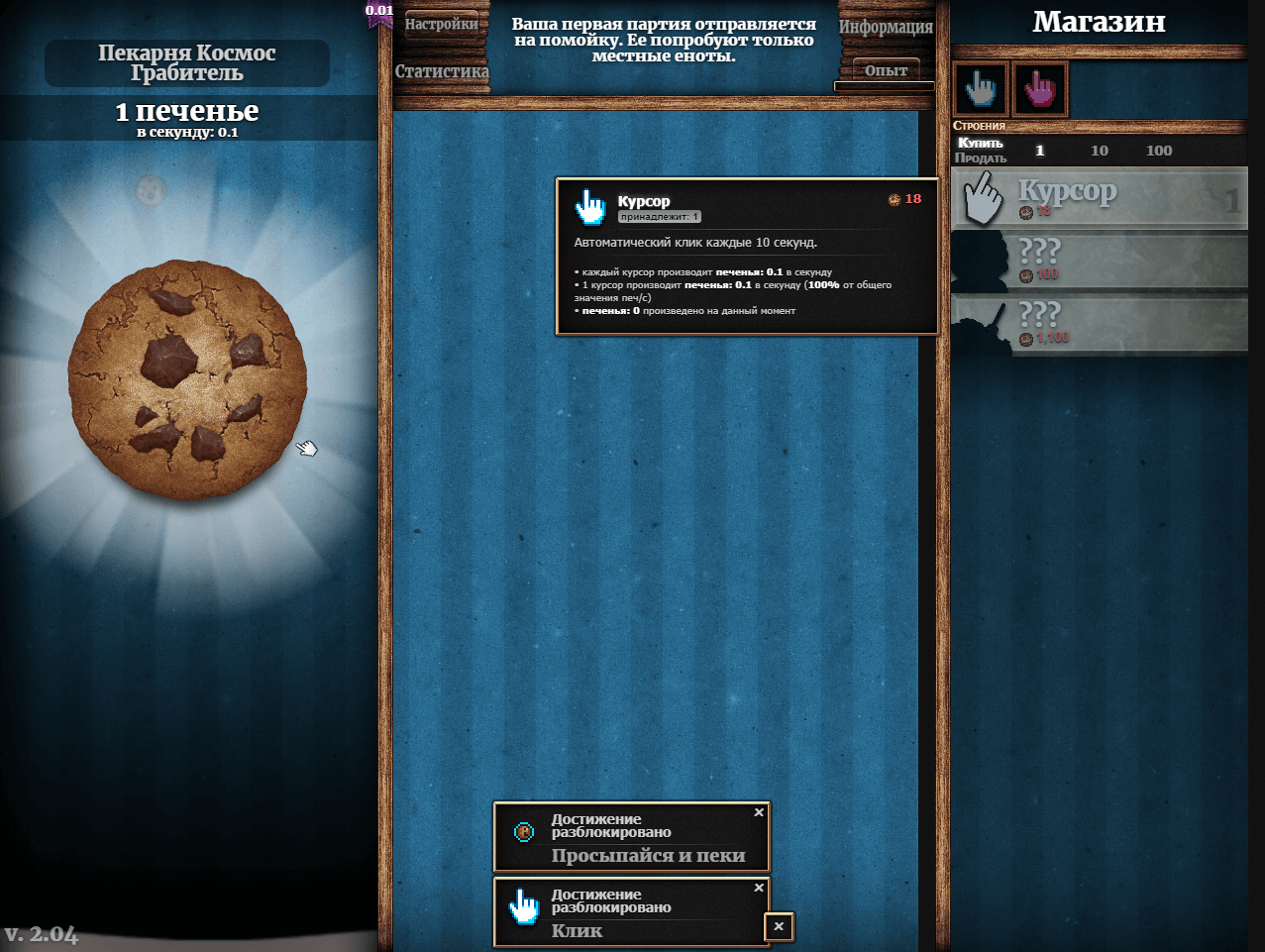
The more you click on a cookie, the more cookies you bake. For eighteen baked cookies the game offers to buy an improvement - an automatic cursor, which will click on the cookie for you every 10 seconds. You don't want to kill your mouse, so 18 clicks in exchange for an albeit rare but automatic click seems like a good deal. After a couple of seconds you find out that ten purchases of such cursors will not only keep your computer mouse or screen sensor alive but will also speed up your cookies production. You start clicking a static picture of cookies to earn more cookies to earn more cookies to bake (unexpectedly!) more cookies. Here you notice that you don't have to click the cookies yourself, you can hire the obliging grannies relatively cheaply. They bake one cookie a second, whereas the clicks that previously required your presence and broke your controller little by little only yield 0.4 cookies. You saw a benefit in hiring grannies, so now three grannies are baking cookies. Slow? Hire ten more, there'll be more cookies...
...At this very moment, you have an epiphany: That Julien, whoever he is, has already screwed you over. The point of the game is that you resemble a donkey running after a carrot dangling on a string. And you'll like it, because the game is not as simple as it seems at first sight...
Cookie Clicker is a game with a deep storyline. Although the storyline runs through the whole gameplay without visuals, the world of Cookie Clicker is not static. The story begins with a certain unnamed hero getting up in the morning with a burning desire to bake cookies, and once he gets his first cookie, he knows it needs to be developed somehow.
Next, your cookies become known around the neighborhood, further around town. More and more people learn about your cookie, the beginning of this saga is utopian. But as soon as the cookie takes root in people's lives, the essence of the treat is immediately seduced: the cookie becomes an end in itself - cases of armed robbery with the violent seizure of cookies are increasingly glimpsed from news reports; poor countries begin to forge your cookies, an Augustinian couple prefer your cookies specifically. And once you are allowed to deposit your cookies in the bank, the cookies are already replacing fiat currency. Sometimes whole wars will break out over your cookies, sometimes archaeologists will find Sumerian cookies in ancient temples...
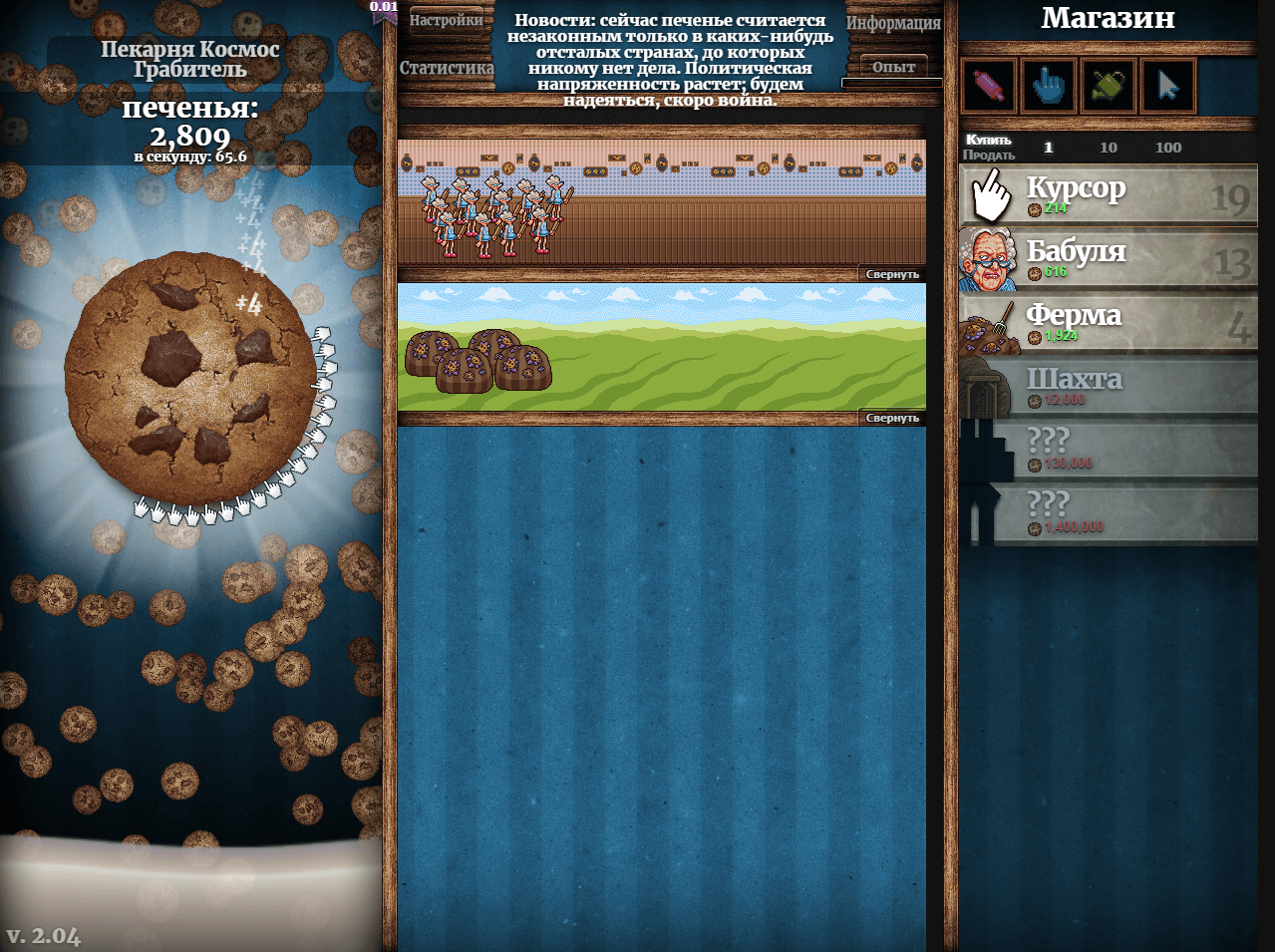
Giantomania in the game flourishes by the minute: Now your cookies have fallen into the hands of aliens. Now an entire galaxy is named after your cookie...
With each new build, the inside story changes slightly; you can read about the changes in the world at the top of the screen. The comedic throw-ins are funny exactly until you learn them all by heart. And since Cookie Clicker is designed for hundreds of hours of gameplay, you'll learn the inserts...
Cookie Clicker as an RPG
Cookie Clicker has an impressive balance for its niche. All the cookies you'll earn throughout the game will be worth their weight in gold, but you won't be in danger of going completely broke. Cookie Clicker is a game about automation. In fact, when you leave the game on, you can make no efforts at all - the cookies will be self-made. All you have to do is set up the process, a similar approach to involvement in "Loop Hero" - the player is required to do the minimum amount of work, just set up your character so that he himself copes with difficulties... No difficulties in Cookie Clicker, but for some reason different players achieve different results in the same time.
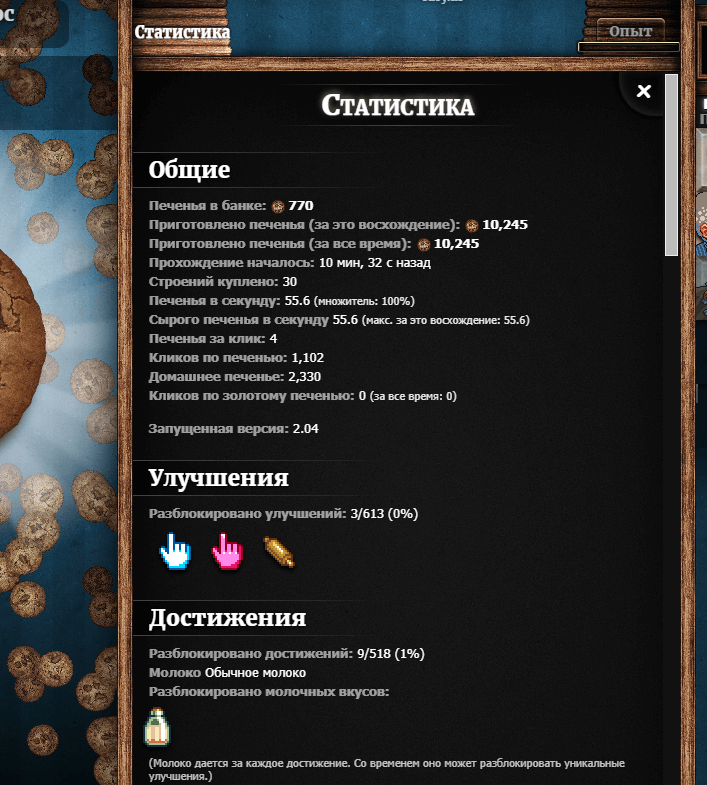
All cookie mining methods have non-obvious branches of development. For example, grannies can have hidden synergy with cookie farms, mines, and temples. On the combination no one will tell you, you can only find out by trial and error. Yes, and the improvements themselves can be both narrowly focused and general. Which one is more profitable? Narrowly focused give more cookies in the short to medium term, and all sorts of +1% to produce cookies will pay off after ten hours, but will bring trillions of cookies later.
As with any self-respecting RPG, and in Cookie Clicker each new needed improvement will have to be mined for a while. If you laughed at Diablo players who are willing to spend hundreds of hours mining rings with +15% elemental resistance instead of +5%, after Cookie Clicker you'll understand the logic of such players. One +1% Cookie improvement will cost you 100 million cookies, and a +2% improvement will cost you 500 million cookies. A fivefold markup for 1% is the norm.
However, there is also a way to swing faster at the expense of personal playability: click on the cookie more often and be on the lookout for a golden cookie that may appear on the screen at any moment!
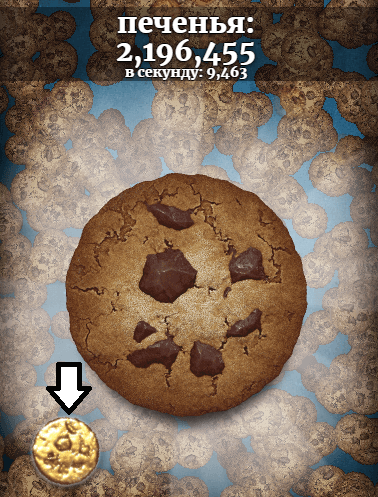
In addition, Cookie Clicker has native MMORPG elements. How do you like the bonus experience for general online games on Steam?
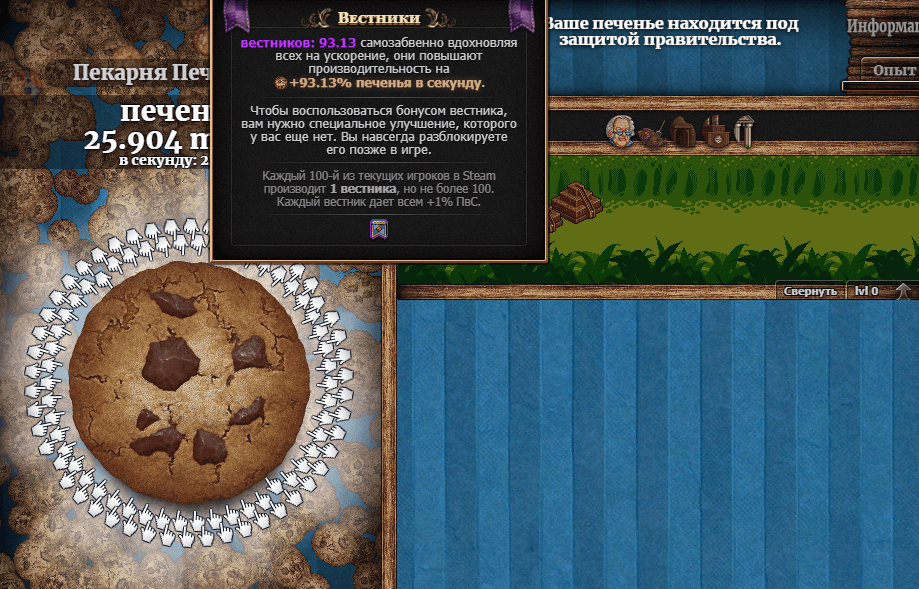
...Kind of a parody of group raids.
What about the sugarcrumb mechanic, which is a permanent improvement of one of the buildings, which only becomes available after 3 days of real time. Notably, you don't have to sit around for three days at a time. Cookie Clicker proactively informs you that after 3 days you can improve something, you don't even have to go into the game. Interesting mechanics.
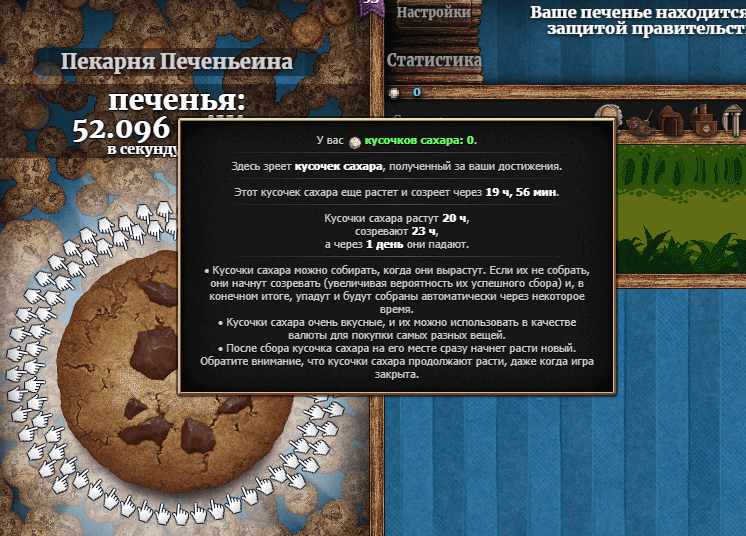
But as if that weren't enough, over time Cookie Clicker also has elements of crafting and building. The crafting is so convoluted that you can find guides on the Internet on the correct combinations... Clicker guides.
Cookie Clicker as Roguelike
It's hard to believe, but Cookie Clicker is a bit Roguelike. The game has only one mechanic of the Berlin interpretation, but what a mechanic!
Julien realized that mining cookies for the sake of mining cookies to infinity was boring, so he broke the game up into runs. To get you to mine cookies faster in the new game, there is "prestige," just like in Call of Duty...
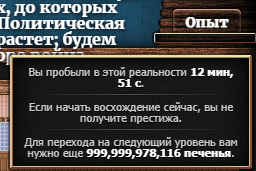
To achieve prestige you only need to extract a trillion cookies...
After that, your cookie will ascend to the cosmic expanse and gain the power of the cosmos:
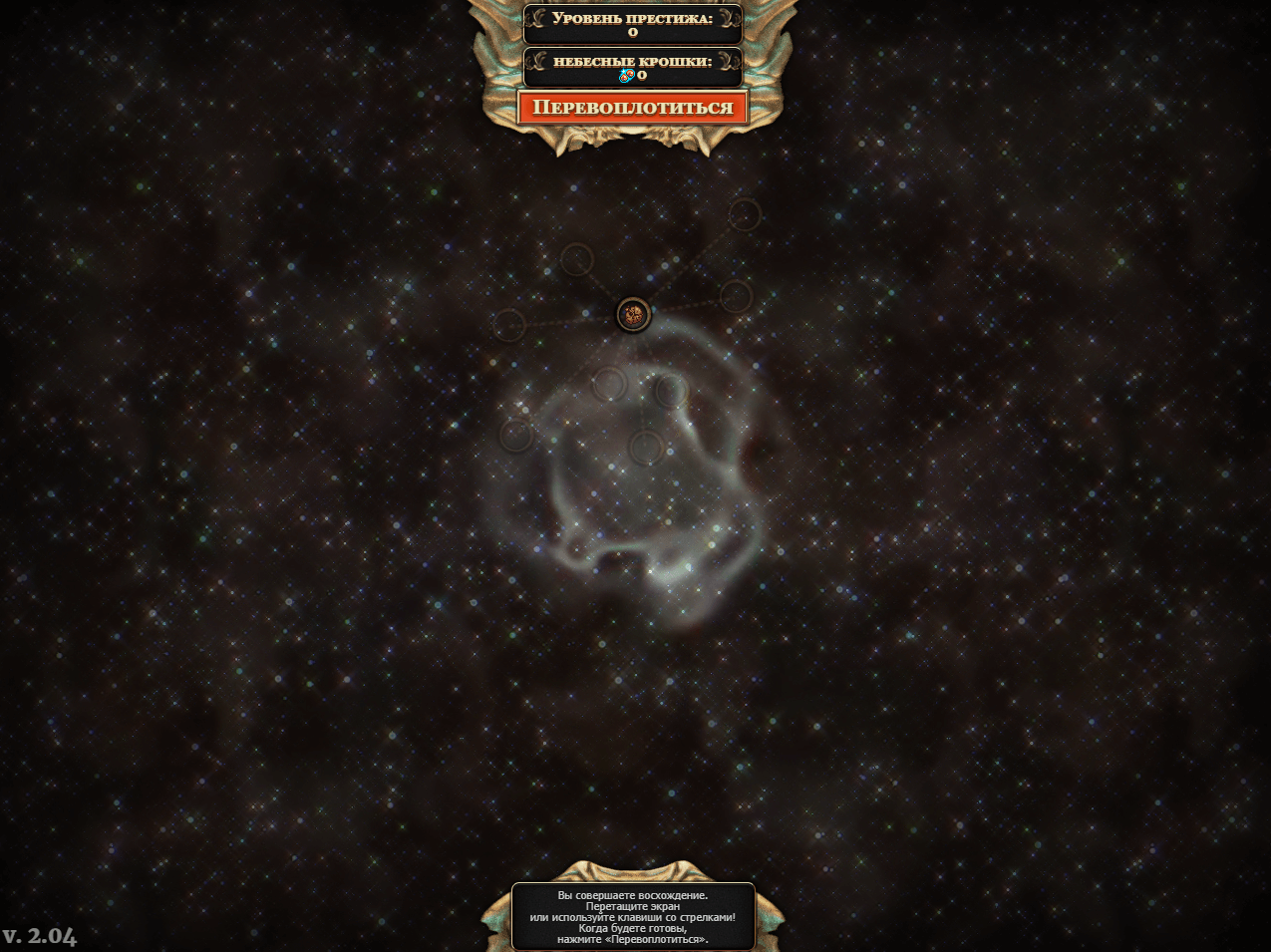
And there, in distant galaxies, your cookies will gain the power of entire universes. Do you remember the first time you clicked on a cookie...?
